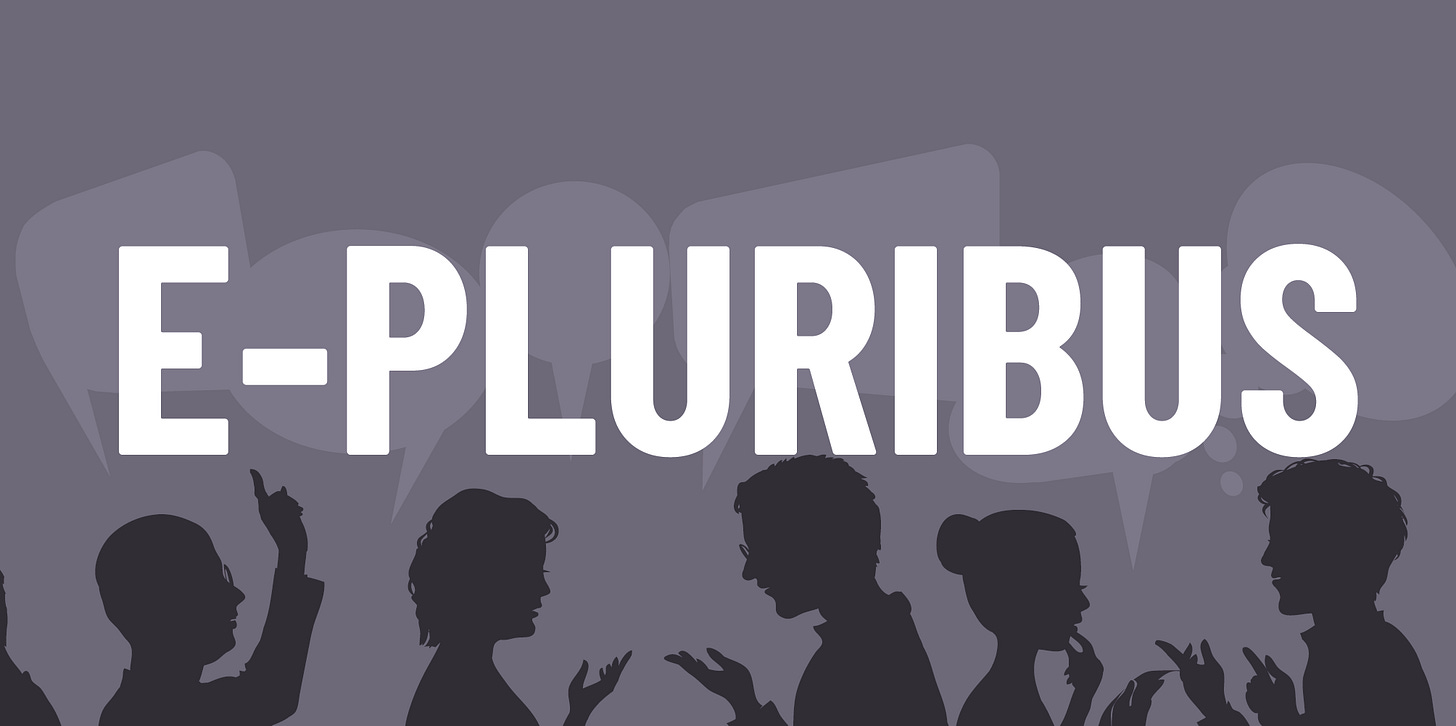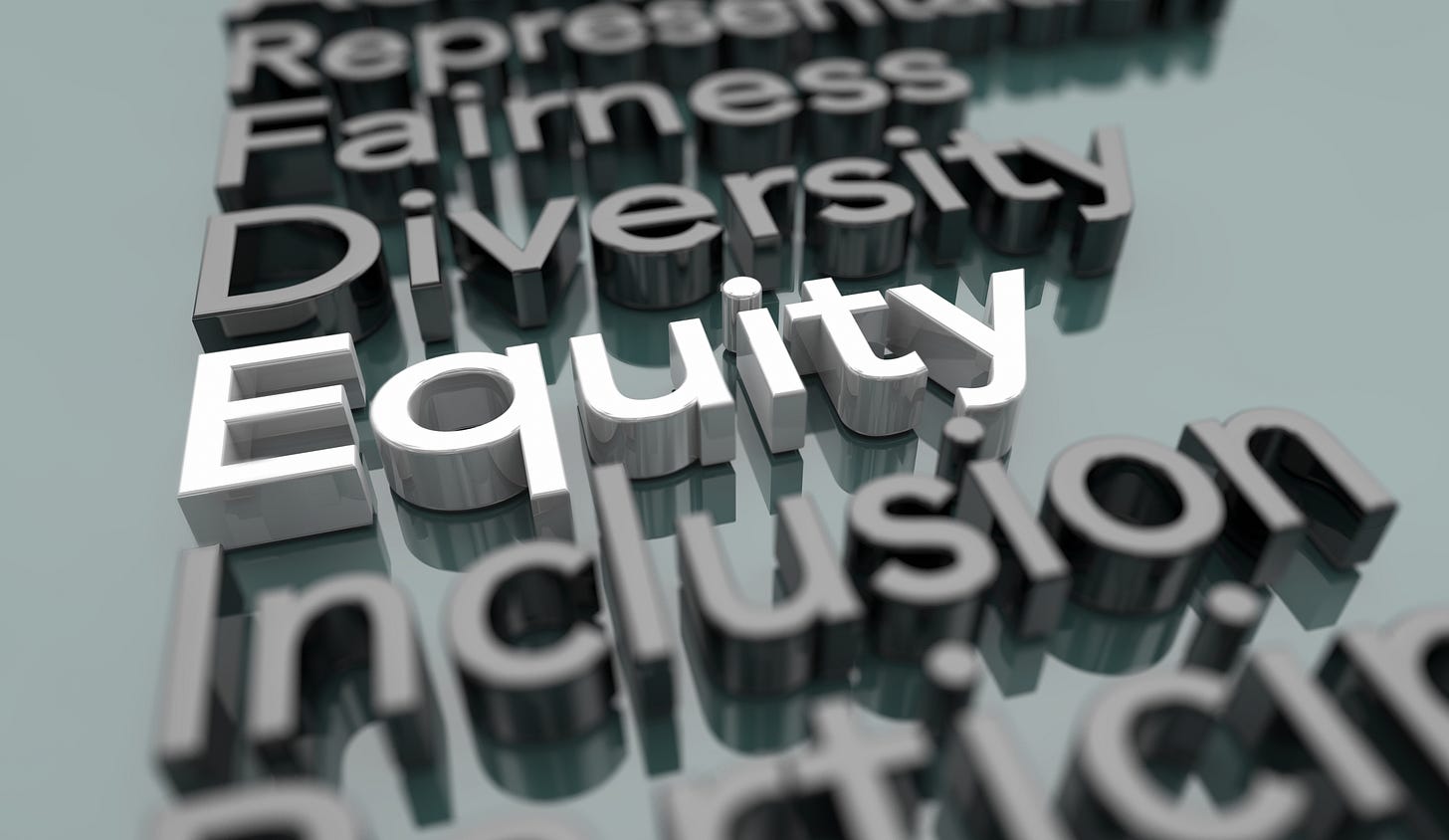E-Pluribus | July 2, 2021
The wrong way to teach about racial equity, absolute truth is essential, and a judge nixes Florida's attempt to rein in Big Tech.
A round up of the latest and best writing and musings on the rise of illiberalism in the public discourse:
Cathy Young: How Not To Teach Racial Equity
While empathy can be a useful tool in education, Cathy Young writes at Arc Digital about a school assignment in a Michigan school that asked white students to imagine a variety of scenarios with the assumption that race is the primary factor. This guilty-until-proven-innocent approach to education does more to reinforce race in young minds than it does give them tools to help overcome the inequities and divisions in our society.
In early March, a controversy about a school assignment on “white privilege and whiteness” flared up in Mancelona, a village of about 1,300 people in Antrim County, Michigan (95 percent white and mostly lower-middle-class). The assignment was given to a high school English class as part of a unit on diversity, in conjunction with a reading of Lorraine Hansberry’s classic 1959 play А Raisin in the Sun.
The assignment consisted of reading a 2020 article by therapist Arlin Cuncic from the mental health website Verywell Mind titled “What Is White Privilege?,” followed by a worksheet on “white privilege and whiteness.”
[…]
The article also operates on the key assumption I discussed in my piece, one I believe is deeply pernicious: that absence of unjust discrimination equals “privilege.” The specific examples of “white privilege” used in the article include not fearing that “your race could put you at a disadvantage or that you may be treated unfairly” if you need to ask the police for help; not having to worry about being pulled over because of your skin color when driving through a wealthy white neighborhood; not having to worry about being unwelcome in your new neighborhood because of your skin color; not feeling “visceral fear that your child may not come home as a result of police or extrajudicial violence”; not being treated as suspicious while shopping; and not having to worry that your natural hair may be considered “unprofessional” in the workplace.
Read it all here.
Alan S. Rome: In Defence of Absolute Truth
As society continues its march toward secularism and moral relativism, Alan Rome argues that not only does absolute truth exist, but even those who resist the notion are nonetheless dependent on it. Even apart from religious implications, disparate concepts such as human rights, logic, mathematics and vocabulary must have some measure of universality to even allow coherent dialogue between competing worldviews.
[W]ithout some notion of absolute truth, we are unable to take authentic moral actions, to truly imagine and act towards a better world. One cannot consistently abhor injustices—whether slavery, genocide, or social inequality—unless one believes them to be absolutely, and not just relatively, wrong. If we are to believe in certain fundamental human rights, applicable to all people everywhere, we have to believe that they are absolutely true. They would not be human rights otherwise. They would apply only to those individuals who believed in them. In the same way, for all social reform we recognise that some aspects of society are unjust and need to change and that therefore there is some ideal standard of value that transcends actual practices. If we did not, we would have no basis upon which to suggest that our ideals were better than actuality, let alone to try to impose them upon others by realising them. Indeed, as rational beings, we cannot act whole-heartedly on principles that have no support except for our personal preferences. Philosopher Leo Strauss pointed out that “if we cannot have any knowledge regarding the ultimate principles of our choices—that is to say, regarding their soundness or unsoundness—we are in the position of men who are sane and sober when they are engaged in trivialities, and gamble like mad men when confronted with serious issues.”
Read the whole thing.
Elizabeth Nolan Brown: Florida's Social Media Bill Was Supposed To Protect 'Free Speech.' A Judge Says It Violates the First Amendment.
Soon after Florida passed its shot-across-Big-Techs-bow legislation, a district court judge shut it down, ruling that the law is unconstitutional, writes Elizabeth Nolan Brown. Ostensibly a measure to prevent censorship and protect freedom of speech, the judge ruled that requiring a provider to post content against its wishes is in itself a freedom of speech violation.
[Florida's controversial and authoritarian new social media law…] prohibits social media providers from suppressing or prioritizing any information "posted by or about a user" who is a candidate for political office, and from suppressing or adding addendums to posts by a "journalistic enterprise" based on the outlet's content. Those that violate this directive would face fines of up to $250,000 per day (though some of Florida's favored companies, like Disney, are exempted from the law).
On Wednesday, Judge Robert L. Hinkle of the U.S. District Court for the Northern District of Florida ruled that the law violated the First Amendment.
[…]
"The legislation compels providers to host speech that violates their standards—speech they otherwise would not host—and forbids providers from speaking as they otherwise would," noted Hinkle in his decision. Moreover, "the Governor's signing statement and numerous remarks of legislators show rather clearly that the legislation is viewpoint-based."
Around Twitter
A thread on some of the issues the National Education Association is keeping itself busy with at its current annual meeting:
Thoughts from Andrew Sullivan and Christopher Rufo on CRT-based education lawsuits:
Bari Weiss hosted Winston Marshall on her podcast this week. Marshall recently left his English folk rock band over… a tweet:














